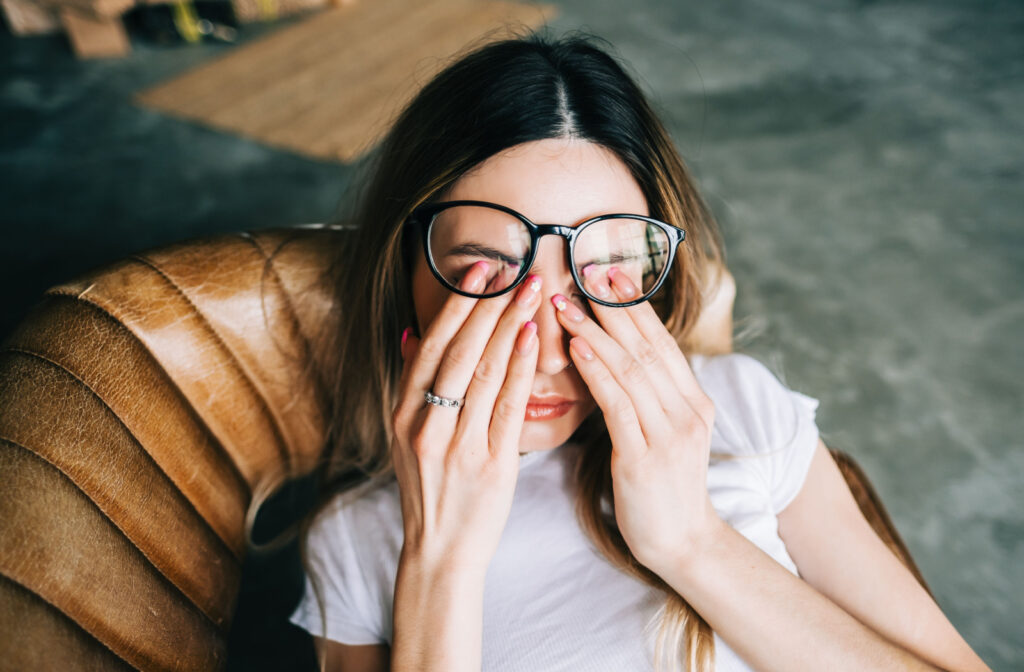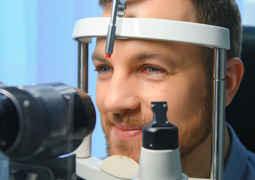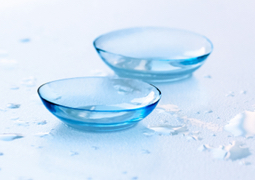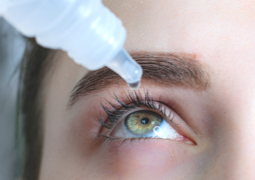Your eyes are some of the most vital organs in your body. They allow you to perceive the world around you, and without them working at their full potential, you may miss out on a lot. But they can also be delicate and need to be looked after. That’s why eye care and regular comprehensive eye exams are crucial.
However, when we get tired, stressed, or our eyes are irritated from conditions like dry eyes, despite our best efforts, the urge to rub our eyes can be overwhelming. Everyone does it, but is it bad to rub your eyes? Can you rub your eyes too much? Rubbing your eyes can be bad for you because it can increase your risk of infection, damage delicate tissue, and worsen dry eyes and allergies.
Why Do We Rub Our Eyes?
So, why do we rub our eyes in the first place? We often don’t even think about it, but most people would probably say they rub their eyes daily.
Common reasons people rub their eyes include:
- Allergies, such as hay fever or reactions to dust mites
- Conjunctivitis or other eye infections
- Dry eyes
- Digital eye strain
- Irritation from contact lenses
Rubbing your eyes isn’t always harmful when done in small amounts. In fact, rubbing eyes can help stimulate tears to lubricate the eye, but there’s usually a safer and more effective way to relieve itch or irritation.
What Happens If You Rub Your Eyes Too Much?
Rubbing your eyes might feel like a quick fix, but it can lead to long-term side effects.
Increased Risk of Infection
Our hands are covered in germs, and when we rub our eyes, we’re introducing those germs to the soft tissues on and around our eyes. This can cause infections such as conjunctivitis (pink eye). The symptoms of eye infections can include redness, itching, and eye discharge.
Damage to Delicate Tissue Around Your Eyes
The skin around our eyes is delicate and thin, and constant rubbing can cause damage. Rubbing your eyes can cause broken blood vessels, dark circles, and wrinkles. Moreover, rubbing your eyes can put pressure on the cornea, the transparent dome covering the front of your eye.
This rubbing can cause a condition called keratoconus, where the cornea thins and bulges into a cone shape. Keratoconus can lead to blurry and distorted vision and may require a cornea transplant in severe cases.
Worsened Allergies
If you suffer from allergies, you may be familiar with the urge to rub your eyes. However, rubbing your eyes can make your allergy symptoms worse. This is because when you rub your eyes, you release histamines, which can cause even more itching and redness.
Additionally, your hands can get covered with allergens. If you then rub your eyes, you may introduce more allergens, worsening your symptoms. This is especially true if you’re allergic to pet dander or pollen.
Increased Eye Pressure
Rubbing your eyes may increase intraocular pressure (IOP), which may lead to glaucoma. Glaucoma is a group of eye diseases generally associated with increased pressure in the eye.
This increased pressure may damage the optic nerve, which transmits visual information to your brain. If left untreated, glaucoma can cause permanent vision loss.
Dry Eye Agitation
If you suffer from dry eyes, rubbing your eyes can make the condition worse. Rubbing your eyes typically produces more tears, but if you have dry eye syndrome, this may not give you any relief. In fact, it can cause your eyes to feel even drier and cause discomfort, redness, or blurred vision.
Additionally, rubbing dry eyes can cause tiny scratches on the surface of your eyes. This can hurt and make them even more prone to dryness. There are more effective, longer-lasting treatments for dry eyes.
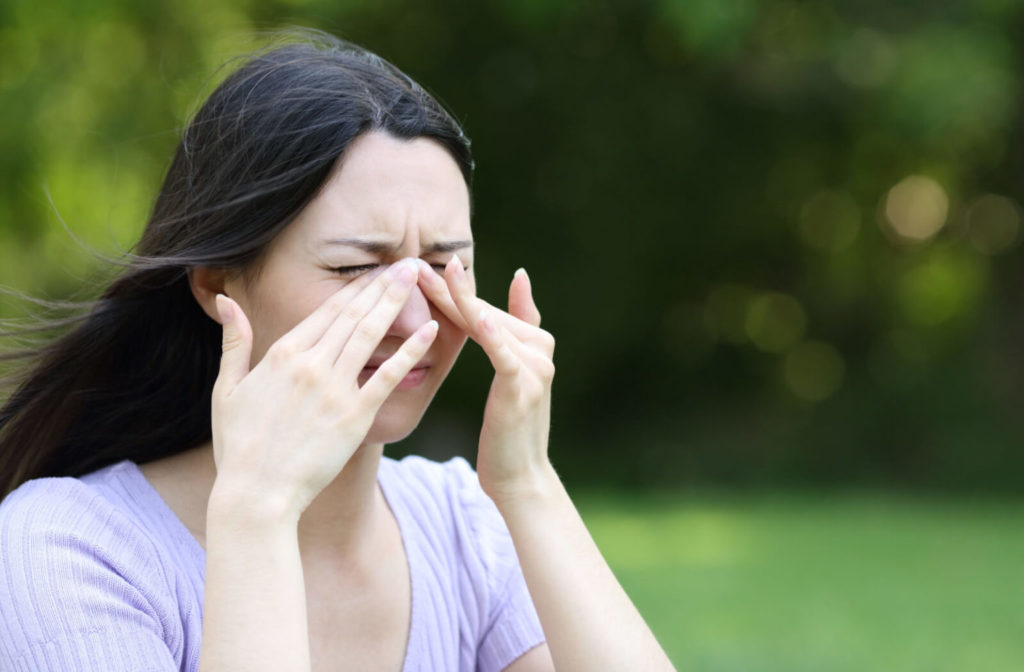
Preventing Eye Rubbing
Everyone rubs their eyes from time to time, but if you find you rub your eyes often, there are things you can do to protect your eye health or prevent chronic eye rubbing.
Here are some tips:
Practice Good Hygiene
Make sure to wash your hands regularly and avoid touching your eyes as much as possible. Touching your eyes may be unavoidable if you wear contact lenses, but keeping your lenses and hands clean is crucial in avoiding eye infections. If you do need to touch your eyes, use a clean tissue or cotton swab.
Use Eye Drops
There are alternatives to rubbing your dry eyes. For example, you can use artificial tears or lubricating eye drops to help alleviate discomfort and reduce the urge to rub your eyes. Ensure you follow the directions on your eye drops, as some might have a daily limit. Consult your optometrist for advice on which eye drops to use.
Manage Your Allergies
If you suffer from allergies, taking allergy medication or using allergy eye drops can help alleviate your symptoms. However, be careful if you also have dry eyes, as antihistamines can cause and irritate dry eyes.
Additionally, avoiding allergens such as pollen, dust, or pet dander can help reduce the urge to rub your eyes.
Reduce Stress
Stress is a common trigger for eye rubbing. Finding ways to manage your stress, such as meditation, exercise, or deep breathing, can help reduce the urge to rub your eyes.
Take Breaks From Screens
Staring at screens for long periods can cause eye strain and dryness, potentially making you want to rub your eyes. Taking frequent breaks from screens and practicing the 20-20-20 rule can help reduce digital eye strain. This rule means looking away from your screen every 20 minutes for 20 seconds at something 20 feet away.
Vision Care in Your Community
Rubbing your eyes might feel like a quick fix for discomfort, but it may cause long-term damage to your eyesight. Instead of rubbing, let Calgary Family Eye Doctors find a treatment that provides relief.
If it’s getting difficult to fight the urge to rub your eyes, book a comprehensive eye exam today and let our friendly team help you find relief.


